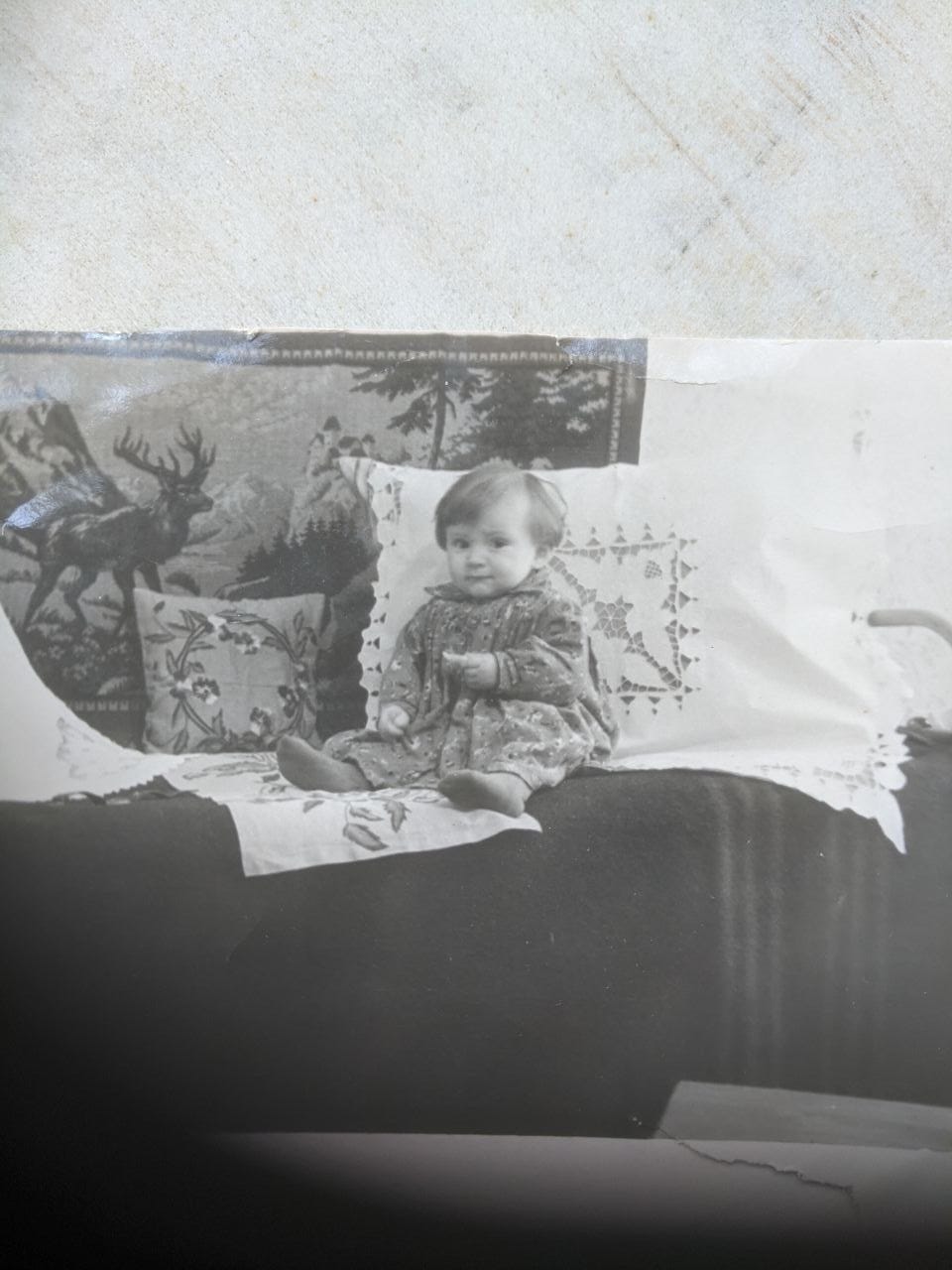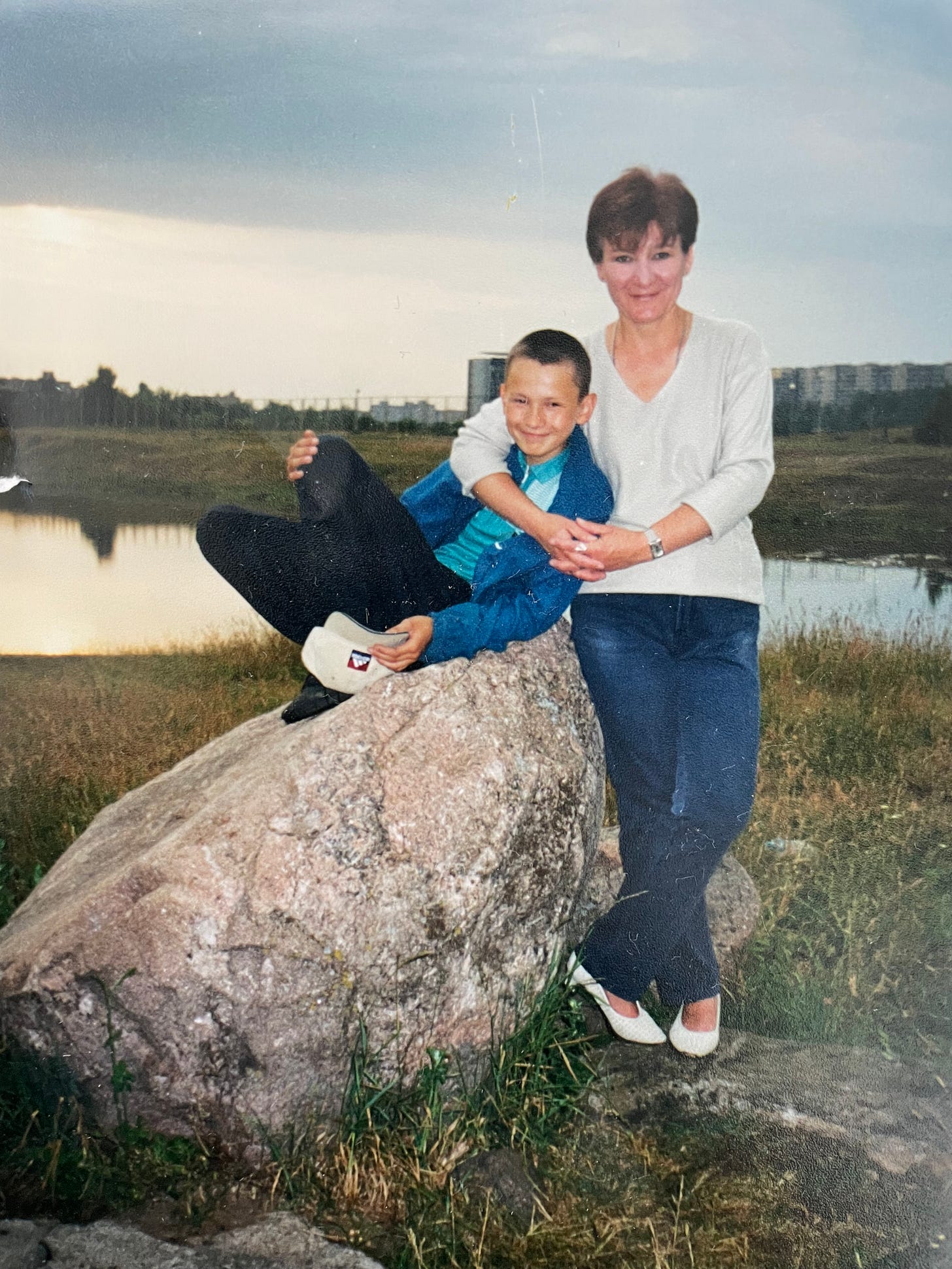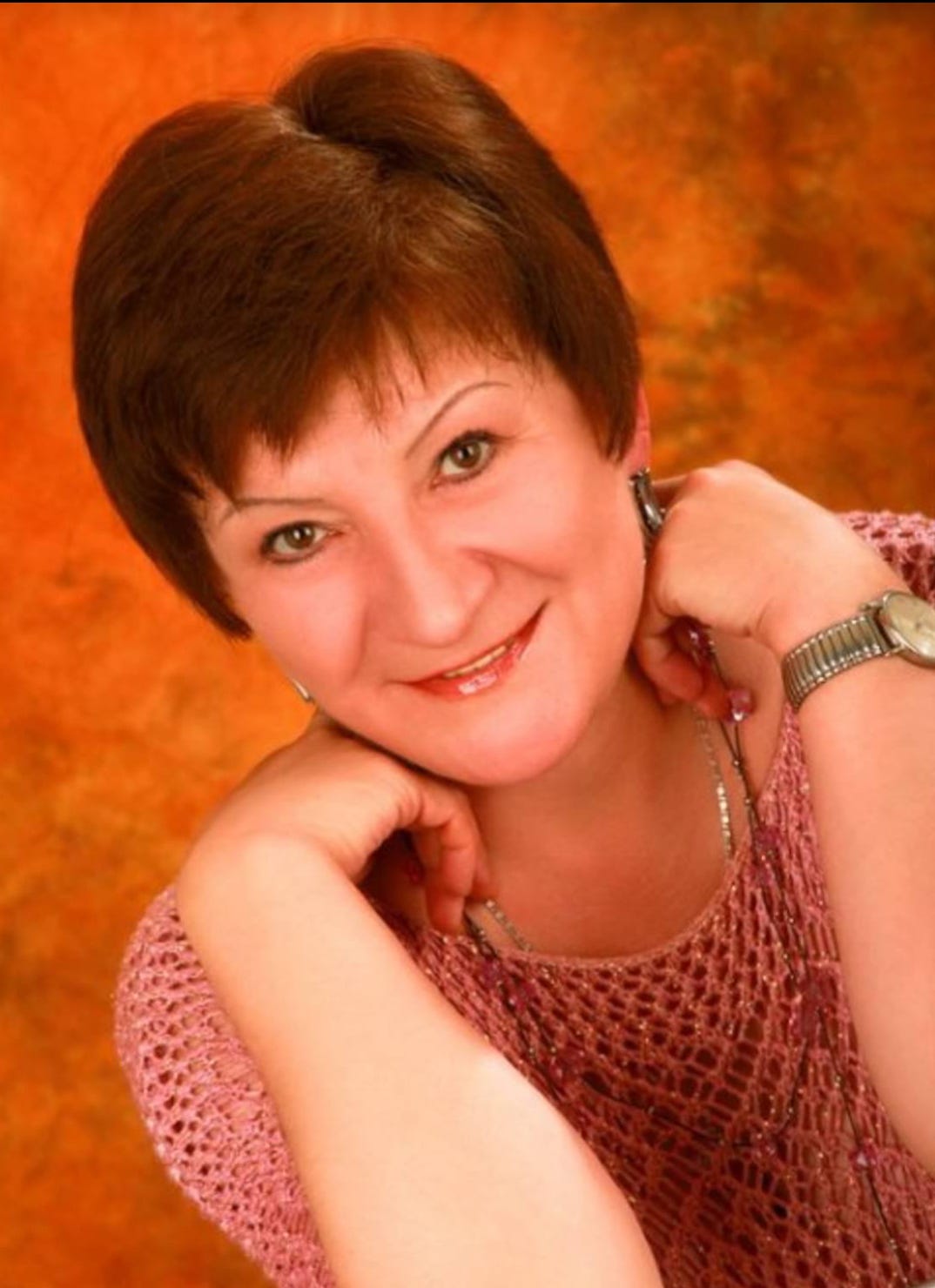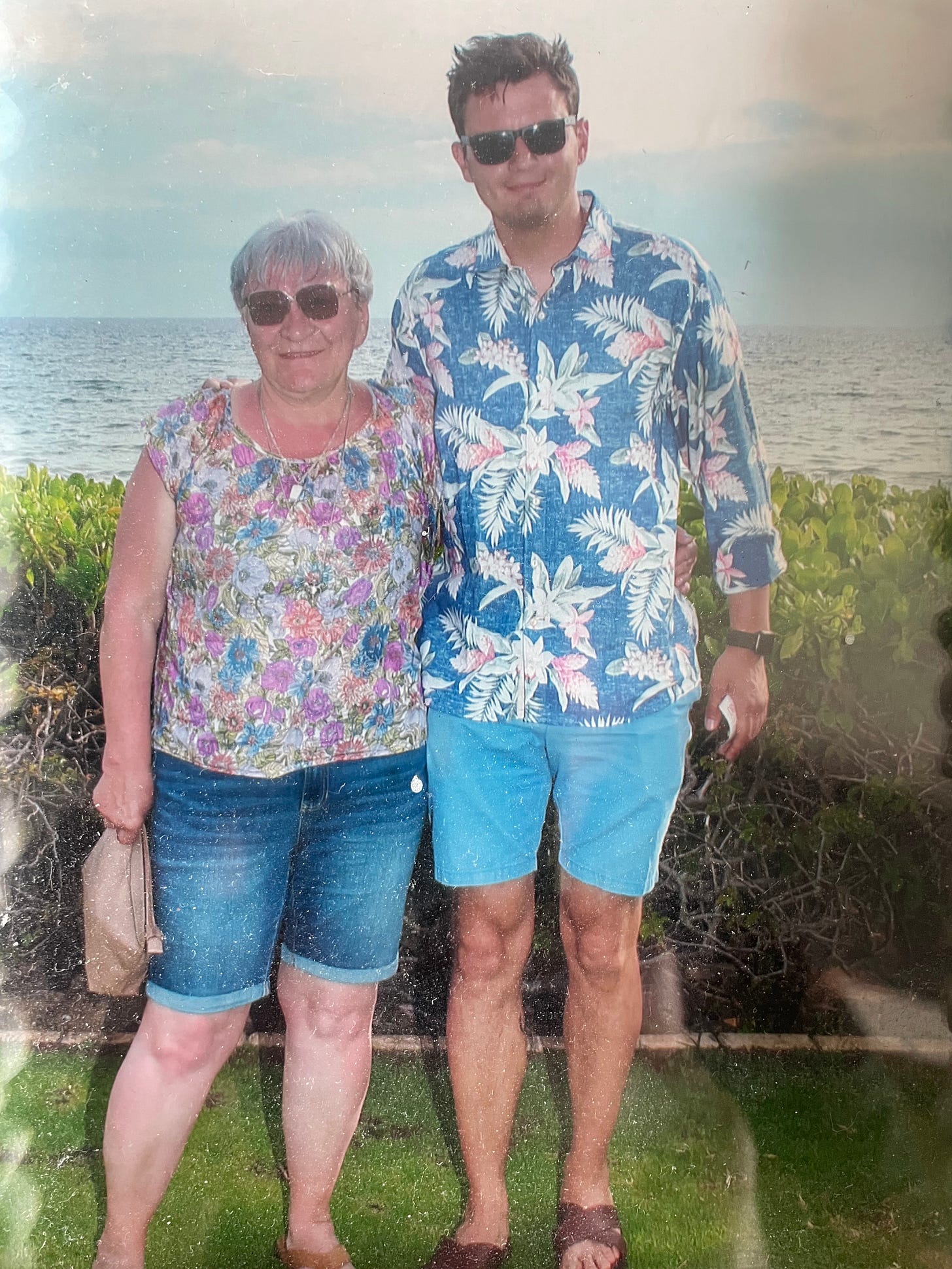From the Soviet Union to San Francisco
My Mother's Extraordinary Journey
My mom recently passed away, and I wanted to write about her life to give her a proper farewell and to have something for myself to reflect on later. My mom was a strong woman who dedicated her life to raising me, her son. In this blog post, I will not only discuss her life but also delve into our family history, as I have learned that generational trauma can affect multiple generations, and in our case, it began even before my mom was born.
When my mom's mother was 15 years old, her father was 50. One day in 1938, a car arrived and took him away. She never saw him again and didn't know what had happened to him for over a couple of decades. If you're unfamiliar with this frightening period in Soviet history, you can read a brief overview on Wikipedia or explore the topic in-depth in this excellent book. I later discovered that I grew up just a mile away from the place where my great-grandfather was killed.
As a result of the events in 1938, my grandmother had to hide the truth and carry this trauma throughout her life. If she had spoken openly about what happened, she would have been considered part of the family of an enemy of the state and would have faced grave danger. Eighteen years later, in the aftermath of the devastating World War II, my mother was born in the ruins of Minsk.
She grew up in a family with a war veteran father, who had served as a partisan and ended the war in Berlin to formally accept Germany's surrender, and the mother I mentioned earlier. Life was challenging, as jobs were scarce and Minsk had to be rebuilt from the ground up. My mom spent her twenties in the late Soviet Union during the era of Brezhnev's stagnation, and it's striking to compare the lack of opportunities she had in her twenties to the many I had in mine. In the late 1980s, her mother finally received a one-bedroom apartment from the government as a form of apology for the events of 1938, and she was able to move into her own space. With this newfound independence, she decided to have a baby. The story of my conception is a tale for another day, but it's important to note that until I was 27, I believed my non-biological father was my true father. This was due to the fact that my mom deeply desired a child, and my non-biological father struggled with fertility issues, despite their efforts to conceive and the surgeries they underwent for about four years.
The most challenging period in my mom's life began in the early 1990s with the collapse of the Soviet Union and her subsequent divorce from her husband in the mid-1990s when I was around seven years old. While Americans worry about inflation in 2024, in post-Soviet Russia and Belarus during the 1990s, a year with 1,000% inflation was considered a good year. To emphasize this point, if your currency lost 90% of its value in a single year, it was considered a relatively positive outcome at the time. Food was scarce; I rarely ate meat, and my mom never did during this period. I would eat pelmeni (dumplings), and she would drink the broth afterward to obtain some nutrition. Despite the hardships, she made sure I developed strong math and English skills and enrolled me in a gymnasium, setting me on a different path compared to my neighborhood peers. I was surrounded by academically oriented students and shielded from the gang influences on the streets of Minsk in the 1990s. By the mid-1990s, she had to part ways with her husband, my non-biological father, and from that point on, she supported me on her own. Loneliness would become a recurring theme in her life, particularly after I left for the United States in 2007.
Since 2007, my mom dealt with loneliness in her own way and lived vicariously through me. Although I was the primary focus of her life, she allowed me to move far away and couldn't exert any control over my life from that point on, precisely because of the vast distance between us. For instance, when I decided to buy a motorcycle, she would quietly agree but then cry profusely about it. She struggled with numerous fears and anxieties, which stemmed from her upbringing by a mother who was herself fearful and anxious due to the events of 1938 and World War II. I can only imagine how difficult it must have been for her to worry about my life choices while I was living in the distant San Francisco Bay Area.
Fast forward to 2013, when I had the opportunity to meet my mom in Italy. We spent a couple of weeks together exploring the country, creating some of the most cherished memories of my life. During this trip, she revealed to me that I was old enough to know the truth about my father not being my biological father. It was an incredibly difficult conversation for her, as she was concerned that I might not be able to understand her decision. However, I was at peace with the revelation, recognizing that regardless of who my biological father was, I had been given the gift of life.
In 2022, when the full-scale Russia-Ukraine war began and Belarus started to play a significant role in the conflict (as you may recall, the Russian attack on Kyiv primarily started from Belarusian territory), I managed to persuade my mom to come to the United States. Getting her there was an adventure in itself: I ended up meeting her in the country of Georgia (out of the four flight tickets I purchased for her to get there, only one worked). We then waited for her Schengen visa to become active, flew to Poland, obtained a United States visa, and finally arrived in San Francisco. In her late 60s, she embarked on a new life—learning English, making new friends in a new home, and joining me on adventures in 2022, visiting Los Angeles, Oregon, and numerous places around the San Francisco Bay Area. I admire her openness to new people and experiences at this stage of her life, even though the journey was not without its challenges.
When my mother passed away in 2024, reading a Tibetan Buddhist book proved to be incredibly helpful in coming to terms with the concepts of life and death. Throughout the challenging periods of my life in the United States, I have found solace in reading Buddhist books, and this particular one provided significant comfort in the immediate aftermath of her passing. Although my mom is no longer physically present, my relationship with her endures through memories (both from Belarus and San Francisco), the lasting impact she had on my life, and the imaginary conversations I will continue to have with her in the future. Our loved ones live on through the ways in which they have shaped us and the lessons they have imparted to us.
I am deeply grateful to my mom for raising me single-handedly through the tumultuous 1990s, guiding me onto the right path, and allowing me to spread my wings in the San Francisco Bay Area later in life. I am also thankful for her courage in coming to the United States and spending her final days by my side. To honor her wishes, I will scatter her ashes on the Pacific Ocean and continue to live my life with the understanding that she is an integral part of me, regardless of her physical presence.






Sashka, she was an amazing woman, I still cannot believe she is gone… As scared and frightened as she was by things in life sometimes she was smart, clever, very resourceful, she was a “bad ass” and very much fun to be around! So many great memories, so many laughters! Lonely at times, she found her happiness knowing you are happy!
What a beautiful essay, thank you for sharing